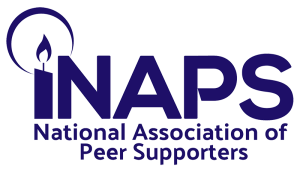Peer Support Specialist Training
If you have ever overcome an addiction or mental health challenge yourself or been close by as a friend or family member recovered, you know the importance of a good support system. In this 100% online course you will learn the formal concepts and procedures to become a Peer Support Specialist. By completing this course, you will receive the content and standards that are promoted by INAOPS, the International Association of Peer Supporters.
Enroll NowJob Outlook for Peer Support Specialist
- The US Bureau of Labor Statistics (BLS) counts Peer Support Specialists as Health Educators and Community Health Workers, a group it expects to grow by 13% between now and 2029. This is much faster than anticipated growth for all job categories. The BLS notes that growth in these areas will be driven by the need to provide education and support in order to reduce healthcare costs and ensure that clients receive access to the healthcare services they need.
- According to PayScale.com, Peer Support Specialists earn $32,400 per year, on average. Top Peer Support Specialists earn over $50,000 per year. Over 4 out of 5 Peer Support Specialists report that they are “highly satisfied” with their jobs.
Peer Support Specialist FAQs
What do peer support specialists do?
Where do peer support specialists work?
Are peer support specialists licensed?
Course Objectives
- The central knowledge base and behaviors of effective Peer Support promoted by iNAOPS
- The attributes, roles, duties and guidelines for a Peer Specialist
- Recognize aspects of recovery unique to the individual, as well as developing their own recovery definition
- The creating and exploring of community resources, courtroom etiquette, help peers identify and understand communication barriers, and the reasoning behind documenting practices
- How transformational language helps a peer specialist in the transformation in services for people with mental health problems
- Various communication techniques commonly used in a peer support setting
- The history of mental illness with attention to how and why the recovery model has emerged
- Tools that will help you develop appropriate and effective ways of approaching peers and/or veterans with a substance disorder and/or co-occurring disorder
- Cultural differences you are likely to encounter as a peer specialist
- The critical nature of how ethics and boundaries play an integral role in the daily job of a peer specialist
- The basics necessary to assist with peer reintegration into the community
- A comprehensive concept of wellness that goes beyond being free of disease or sickness
Prerequisites and Requirements
Basic computer skills are required.
Curriculum
II. Recovery and Resiliency
III. Legal Issues and HIPAA Overview
IV. Stigma Issues
V. Interpersonal Communication
VI. Mental Health Disorders
VII. Substance Abuse Disorders
VIII. Cultural Competence
IX. Ethics: Peer Specialist
X. Adult Education
XI. Community Reintegration
XII. Wellness
Instructors
Jean LaCour, Ph.D., is a Certified Prevention Professional, author, and trainer with extensive experience in the addiction recovery field. She is the co-founder of the NET Training Institute Center for Addiction and Recovery Education, a 501(c)(3) tax-exempt nonprofit corporation offering online training in addiction counseling, peer specialist support, and recovery support services.
Registration and Enrollment
This course is open enrollment. You can enroll and begin at any time.
Enroll Now

